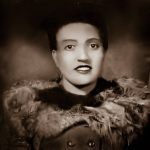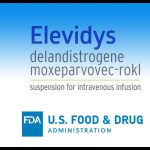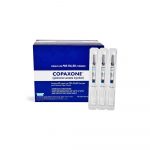Henrietta Lacks’ Estate Files Gene Therapy Lawsuit Against Ultragenyx

Henrietta Lacks‘ estate has filed a lawsuit against Ultragenyx in a Maryland federal court, alleging that the company has unlawfully profited from the use of Lacks’ cells without her consent, which was taken over 70 years ago. According to court documents filed this week, Lacks’ estate claims that Ultragenyx has generated substantial profits by utilizing her cells to manufacture its “proprietary” gene therapy products. Ultragenyx, however, has not yet responded to requests for comment on the lawsuit from media outlets like Fierce Pharma.
The origins of this legal dispute trace back to the early 1950s when Henrietta Lacks, a Black woman, had a sample of her cervical cells taken without her consent by a white doctor working in the racially segregated ward at Johns Hopkins Hospital. Unlike most cell samples that typically die after removal from the body, Lacks’ cells remarkably survived and reproduced in laboratory conditions. These cells were cultivated into a cell line referred to as the HeLa cell line, which could replicate indefinitely in the lab. This development revolutionized medical research and contributed to numerous scientific breakthroughs.
However, Lacks’ estate contends that the circumstances surrounding the creation of the HeLa cell line raise ethical and moral concerns. They argue that even though it was not initially known by medical researchers that the HeLa cells originated from Henrietta Lacks, it was widely understood within the scientific community that these cells were the result of non-therapeutic medical experimentation on Black patients by physicians at Johns Hopkins.
The crux of the lawsuit against Ultragenyx revolves around the company’s production of adeno-associated virus (AAV) vectors for gene therapies. Ultragenyx has positioned AAV-based gene therapy as a cornerstone of its business strategy, and the lawsuit alleges that the company’s competitive edge is linked to the utilization of Henrietta Lacks’ cells without proper authorization. Despite Ultragenyx’s notable therapies like Crysvita and Evkeeza, the company also boasts a pipeline with over five AAV-based gene therapies, with UX111 being a prominent candidate designed to address Mucopolysaccharidosis type IIIA (MPS IIIA), a rare genetic disorder affecting nerve cells.
The lawsuit claims that Ultragenyx’s response to the challenge of growing AAV vectors was to “commercialize for profit” the cells taken from Henrietta Lacks, using them to produce AAV vectors on a significant scale. Viral vectors like AAV vectors are crucial tools in delivering gene therapies and modified cell therapies, as well as certain vaccines. However, due to their broad application in various medicines and limited advancements in manufacturing techniques, a shortage of viral vectors has emerged within the industry.
The lawsuit likens Ultragenyx’s treatment of Henrietta Lacks’ cells to a “dairy farm treating cows,” exploiting them to produce AAV vectors for financial gain, and using Lacks’ body as a mere manufacturing tool. The estate is seeking compensation for what they perceive as Ultragenyx’s wrongful profiteering from Henrietta Lacks’ cells. Specifically, the estate is requesting Ultragenyx to surrender the entirety of its net profits obtained from commercializing the HeLa cell line to Lacks’ descendants. Additionally, they seek a permanent injunction against any future use of Lacks’ cells without the estate’s permission.
In a similar legal battle, Henrietta Lacks’ estate recently reached a confidential settlement with Thermo Fisher. The family had accused Thermo Fisher of reaping substantial profits over the years from the use of HeLa cells, despite being aware of the cell line’s questionable origin.





